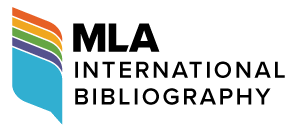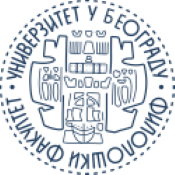The Mother in the Serbian and Spanish Swear Words
DOI:
https://doi.org/10.18485/beoiber.2022.6.1.1Abstract
In the theoretical part of this work we deal with some of the basic characteristics of swearing and we present theoretical assumptions that aim to provide an answer to how to observe this phenomenon. In the analytical part we analyze the swear words related to the mother collected from printed and digital dictionaries and collections of swear words. We focus on the lexical-semantic and syntactic plan through a comparative framework. The results of the research indicate that, both in Serbian and Spanish, the word mother (and its variants, when it comes to Serbian) is used in rude swear words, the main effect of which is to insult a person while the side effect is to insult that same person's mother. Bearing in mind that historically the family has played an important role in social relationships, while family members have demanded respect and esteem from other members of the community, we conclude that swearing associated with a family member represents a serious insult. Likewise, swearing related to the mother reflects verbal violence and represents a serious moral insult, which seeks to connect the sacred or socially important (the mother) with the dirty (scatological acts and excretion), the shameful (sexual acts) and the sinful (incest). Considering that the attitude towards the mother in the patriarchal culture is one of the most sacred relationships, it is not surprising that the swear word related to the mother (as an expression of language as well as culture) has found its place in language use of these two communities.References
Ariza Viguera, Manuel. «Insulte usted sabiendo lo que dice.» Léxico Español Actual II. Luis Luque Toro (ed.). Venezia: Università Ca’ Foscari Venezia, 2009. 31-47. Web. Jan. 2022.
Baraitser, Lisa. Motherhood in Literature and Culture: Interdisciplinary Perspectives from Europe. Gill Rye, Victoria Browne, Adalgisa Giorgio, Emily Jeremiah, Abigail Lee Six (Eds.). New York and London: Routledge, 2018. xiii-xv. Web. Jan. 2022.
Bogdanović, Nedeljko. I ja tebi: izbor iz psovačke frazeologije. Niš: Prosveta, 1997. Web. Nov. 2021.
Georgijev, Ivana. «Análisis comparativo de las palabrotas serbias y españolas: temas sexual y escatológico.» Nasleđe 45 (2020): 175-191. Impreso.
—. «Srpska i španska psovka: osnovna zapažanja o sličnostima i razlikama.» Savremene tendencije u španskoj i italijanskoj filologiji u Srbiji. Bojana Kovačević Petrović y Aleksandra Blatešić (eds.). Novi Sad: Filozofski fakultet, 2021. 73-86. Štampano.
Glavač, Boris. Psovke. Novi Sad: Prometej, 2006. Štampano.
Krstić, Predrag. O čemu govorimo kada govorimo o psovanju. Beograd: Institut za filozofiju i društvenu teoriju, 2014. Štampano.
Ljung, Magnus. Swearing: A Cross-Cultural Linguistic Study. Houndmills, Basingstoke: Palgrave Macmillan, 2011. Web. Nov. 2021.
Mandić, Marija, y Ljubica Đurić. «Psovka kao folklorni žanr: Na primeru jebem ti sunce.» Savremena srpska folkloristika II. Smiljana Belić Đorđević at al. (eds.). Beograd: Institut za književnost i umetnost, Udruženje folklorista Srbije, Univerzitetska biblioteka „Svetozar Marković“, 2015. 291-316. Web. Jan. 2022.
Mutavdžić, Predrag, y Ana Sivački. «Balkanski jezici i opsceni diskurs.» Jezik, književnost, diskurs: jezička istraćivanja. Niš: Filozofski fakultet Univerziteta u Nišu, 2015. 551-565. Štampano.
Parra, Sergio. ¡Mecagüen! Palabrotas, insultos y blasfemias. Barcelona: Vox, 2019. Impreso.
Ristić, Stana. «Diskurs psovki u srpskom jeziku.» Diskurs i diskursi. Volumen monográfico en homenaje a Svenka Savić. V. Vasić (ed.). Novi Sad: Filozofski fakultet Univerziteta u Novom Sadu, 2010. 195-212. Štampano.
Šipka, Danko. Rečnik opscenih reči i izraza. Novi Sad: Prometej, 2011. Štampano.
Vicanović, Marina. «Funkcije opscenih reči i izraza u srpskoj kulturi.» Opscena leksika u srpskom jeziku. Actas del Congreso. Jordana Marković (ed.). Niš: Filozofski fakultet Univerziteta u Nišu, 2017. 173-206. Štampano.
Fuentes (diccionarios y colecciones de palabrotas)
Ainciburu, María Cecilia. «Buscando palabrotas en el diccionario: las malas palabras como cartilla de tornasol en la enseñanza ELE.» ASELE. Actas XV, 2004. 103-110. Web. Nov. 2021.
Bogdanović, Nedeljko. I ja tebi: izbor iz psovačke frazeologije. Niš: Prosveta, 1997. Web. Nov. 2021.
—. «Psovka naša nasušna.» Opscena leksika. N. Bogdanović (ed.). Niš: Prosveta, 1998. 11-17. Web. Nov. 2021.
Celdrán, Pancracio. Inventario general de insultos. Madrid: Ediciones del Prado, 1995. Web. Nov. 2021.
Glavač, Boris. Psovke. Novi Sad: Prometej, 2006. Štampano.
Irazusta Lara, María. Eso lo será tu madre: La bliblia del insulto. Barcelona: Espasa, 2015. Web. Nov. 2021.
Krstić, Predrag. O čemu govorimo kada govorimo o psovanju. Beograd: Institut za filozofiju i društvenu teoriju, 2014. Štampano.
Kunitskaya-Peterson, Christina. International Dictionary of Obscenities: A Guide to Dirty Words and Indecent Expressions in Spanish, Italian, French, German, Russian. USA: Scythian books, 1981. Web. Nov. 2021.
Parra, Sergio. ¡Mecagüen! Palabrotas, insultos y blasfemias. Barcelona: Vox, 2019. Impreso.
Ristić, Stana. «Diskurs psovki u srpskom jeziku.» Diskurs i diskursi. Volumen monográfico en homenaje a Svenka Savić. V. Vasić (ed.). Novi Sad: Filozofski fakultet Univerziteta u Novom Sadu, 2010. 195-212. Štampano.
Savić, Svenka, y Veronika Mitro. Psovke!!! Psovka u srpskom jeziku. Novi Sad: Futura publikacije, 1998. Štampano.
Šipka, Danko. Opscene reči u srpskom jeziku. Beograd: Centar za primenjenju lingvistiku, 1999. Web. Nov. 2021.
—. Rečnik opscenih reči i izraza. Novi Sad: Prometej, 2011. Štampano.
Downloads
Published
How to Cite
Issue
Section
License
Copyright (c) 2022 Ivana Georgijev

This work is licensed under a Creative Commons Attribution-ShareAlike 4.0 International License.
Authors who publish with this journal agree to the following terms:
- Authors retain copyright and grant the journal right of first publication with the work simultaneously licensed under a Creative Commons Attribution-ShareAlike 4.0 International License that allows others to share the work with an acknowledgement of the work's authorship and initial publication in this journal.
- Authors are able to enter into separate, additional contractual arrangements for the non-exclusive distribution of the journal's published version of the work (e.g., post it to an institutional repository or publish it in a book), with an acknowledgement of its initial publication in this journal.
- Authors are permitted and encouraged to post their work online (e.g., in institutional repositories or on their website) prior to and during the submission process, as it can lead to productive exchanges, as well as earlier and greater citation of published work (See The Effect of Open Access).













